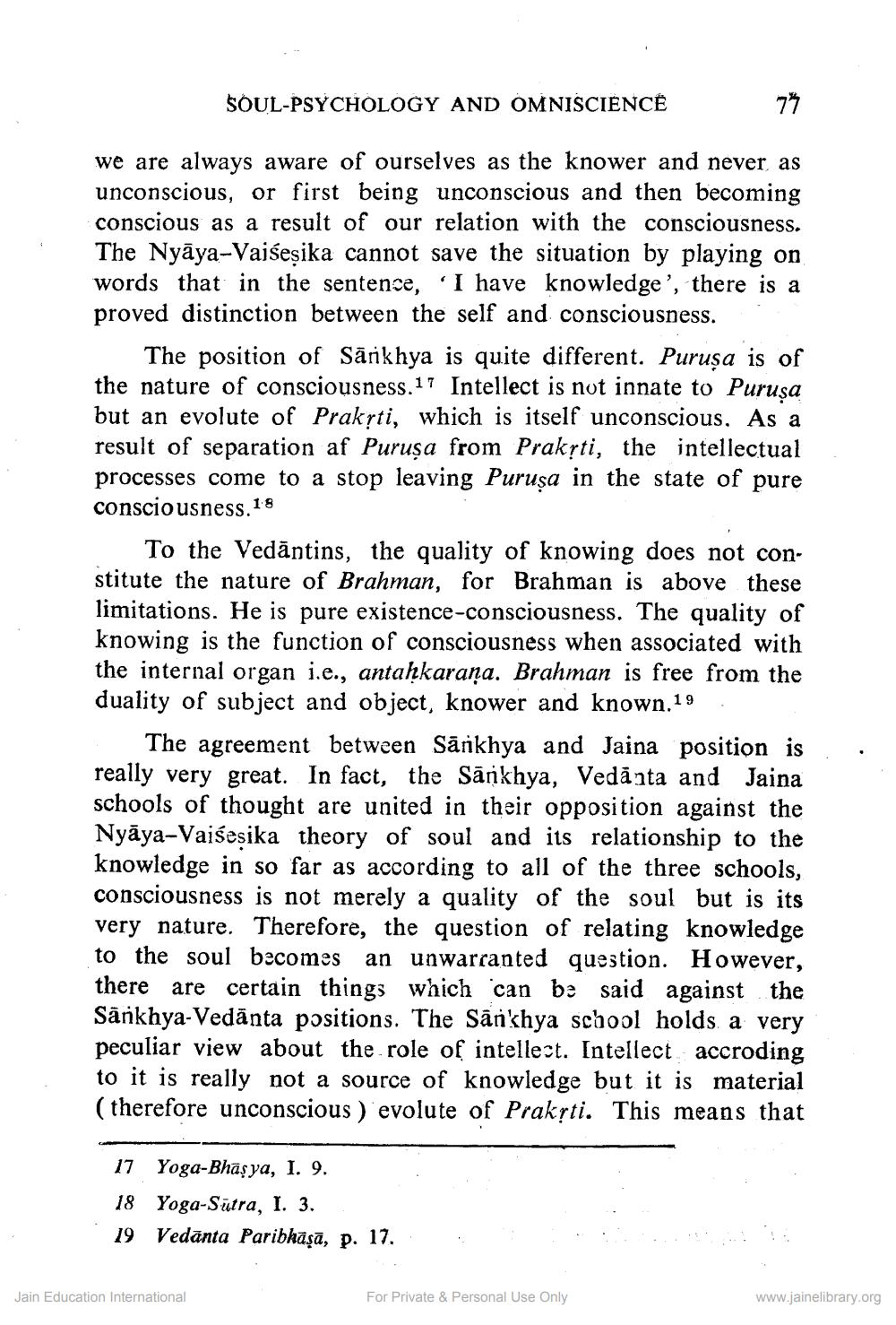________________
SOUL-PSYCHOLOGY AND OMNISCIENCË
73
we are always aware of ourselves as the knower and never as unconscious, or first being unconscious and then becoming conscious as a result of our relation with the consciousness. The Nyāya-Vajśesika cannot save the situation by playing on words that in the sentence, I have knowledge', there is a proved distinction between the self and consciousness.
The position of Särikhya is quite different. Puruşa is of the nature of consciousness.17 Intellect is not innate to Purusa but an evolute of Prakrti, which is itself unconscious. As a result of separation af Puruşa from Praksti, the intellectual processes come to a stop leaving Purusa in the state of pure consciousness. 18
To the Vedāntins, the quality of knowing does not constitute the nature of Brahman, for Brahman is above these limitations. He is pure existence-consciousness. The quality of knowing is the function of consciousness when associated with the internal organ i.e., antahkarana. Brahman is free from the duality of subject and object, knower and known.19.
The agreement between Sārikhya and Jaina position is really very great. In fact, the Sānkhya, Vedānta and Jaina schools of thought are united in their opposition against the Nyāya-Vaiśesika theory of soul and its relationship to the knowledge in so far as according to all of the three schools, consciousness is not merely a quality of the soul but is its very nature. Therefore, the question of relating knowledge to the soul becomes an unwarranted question. However, there are certain things which can be said against the Sānkhya-Vedānta positions. The Sankhya school holds a very peculiar view about the role of intellect. Intellect accroding to it is really not a source of knowledge but it is material (therefore unconscious evolute of Prakrti. This means
.
17 18 19
Yoga-Bhaşya, I. 9. Yoga-Sutra, I. 3. Vedānta Paribhāṣā, p. 17.
Jain Education International
For Private & Personal Use Only
www.jainelibrary.org




